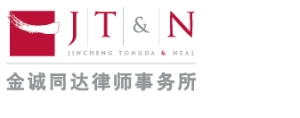The intense competition on the internet in China has led to frequent occurrences of unfair competition. In the past few years, China’s internet giants such as Baidu, Tencent, Sohu and Qihoo 360 have actively or passively been caught up in the swirl of unfair competition suits. Notwithstanding the fact that the dust in the most famous of these, the “3Q” battle, has settled, its impact on the development of the internet in China cannot be ignored.

Partner
Jincheng Tongda & Neal
The current Anti-Unfair Competition Law formulated 24 years ago, subject to the legislative background at the time, does not contain any specific provisions addressing unfair competition on the internet. At present, where the specific provisions of the law cannot be directly applied, courts will generally apply the provisions of principle, i.e., “good faith” and “commonly accepted commercial ethics” of article 2 of the law to rein it in. This method of proceeding has effectively resolved the dilemma of having no law to rely on in adjudicating unfair competition in the internet sector, but the lack of consistency in the determination criteria from case to case and the risk of abuse of discretion by judges have been decried by persons in the industry. Accordingly, it can be said that the addition of provisions addressing unfair competition on the internet in current revisions to the law has commanded the support of the public.
CATEGORIZATION PROVISION
Article 14 of the Draft for Amending the Anti-Unfair Competition Law, submitted to the Standing Committee of the National People’s Congress for first reading on 22 February 2017, expressly sets forth four types of acts of unfair competition in the internet sector: (1) inserting, without consent, links in the online products or services lawfully provided by other business operators, forcing a jump in target; (2) misleading, deceiving or compelling users to modify, close or uninstall the online product or service lawfully provided by another; (3) interfering with or disrupting the normal operation of the online product or service lawfully provided by another; and (4) maliciously causing incompatibility with the online products or services provided by other business operators.
The four types of acts of unfair competition specified in the amendment draft in fact derive from a high-level summarization of judicial practice. Comparing the current amendment draft with the one published by the State Council last year for public consultation, it can be seen that the amendment draft is more future oriented. Firstly, the amendment draft substitutes “maliciously causing incompatibility with the online products or services provided by other business operators” for “blocking the user’s normal use of other business operators’ online app services by technical means without the user’s consent” in the consultation draft, making the categorization more specific. Secondly, in its wording, the amendment draft uses “technical means” with its much wider connotation to substitute for the “network technology or application service” of the consultation draft, more effectively addressing the new technologies that will arise after the implementation of the new law, and changes “online app services” to “online products or services”, which is wider in scope while being easier to understand and apply.
In order to address new circumstances that may arise, article 15 of the amendment draft additionally provides that, with respect to a market trading act not expressly provided for in article 14 or relevant laws or administrative regulations and which requires investigation and handling, the State Council’s industry and commerce authority or the State Council’s industry and commerce authority together with relevant State Council authorities is/are to study the issue and put forth an opinion as to whether it should be recognized as an act of unfair competition and submit the same to the State Council for a decision. This provision changes the provision in the consultation draft that “the same shall be determined by the State Council’s industry and commerce authority”, returning the expanded authority to define an act of unfair competition to the State Council, thereby effectively avoiding potential abuse of administrative law enforcement authority, while leaving room to rein in new types of acts of unfair competition.
ADMINISTRATIVE AUTHORITY
As compared to the current unfair competition law, the amendment draft increases the functions and powers that the administrative law enforcement authority can exercise in an investigation, including: entering the place of business where the suspected act of unfair competition is being committed to conduct an inspection; ordering the business operator that is being investigated to cease the suspected act of unfair competition; placing under seal or seizing the property relating to the suspected act of unfair competition; and querying the bank accounts of the business operator suspected of committing the act of unfair competition and the accounting vouchers, books, statements, etc., relating to the deposits. Ordering cessation and putting under seal and seizing relevant property is conducive to enhancing administrative regulatory efficiency and effort, and timely putting a halt to infringement; whereas querying the bank accounts, etc., is more conducive to assisting the law enforcement personnel in effectively determining the scale of, and the proceeds derived from, the infringement, providing the basis for the subsequent administrative penalties.
Furthermore, article 27 of the amendment draft sets forth the yardstick for the administrative penalties for unfair competition on the internet. In addition to an order to cease the infringement, a fine of not less than RMB100,000 and not more than RMB500,000 will be imposed for an ordinary act, whereas an act the circumstances of which are serious will be subject to a fine of not less than RMB500,000 and not more than RMB3 million. Of course, how serious circumstances are to be specifically determined will have to await the issuance of further detailed rules by the relevant authorities after the amendment of the law.
In summary, the amendment draft submitted for deliberation not only increases the constraints on acts of unfair competition in the internet sector, but also greatly enhances the weight of penalties. Although, in comparison with the consultation draft, the amendment draft restricts the expansion of administrative power to a certain extent, it nevertheless represents a major change when compared with the current unfair competition law. Although the amendment draft is not the final version, strengthening the regulation and control of the internet sector is the general trend, and internet enterprises need to take this with great seriousness, improve their internal controls and strengthen their compliance reviews so as to avoid the occurrence of such risks.
Sun Jinlin is a partner of Jincheng Tongda & Neal
中国上海浦东新区世纪大道201号
渣打银行大厦9层 邮编: 200120
9th Floor, Standard Chartered Tower
No. 201 Century Avenue, Shanghai 200120, China
电话 Tel: +86 21 6079 5656
传真 Fax: +86 21 6079 8759
电子信箱 E-mail:
sunjinlin@jtnfa.com
www.jtnfa.com






















